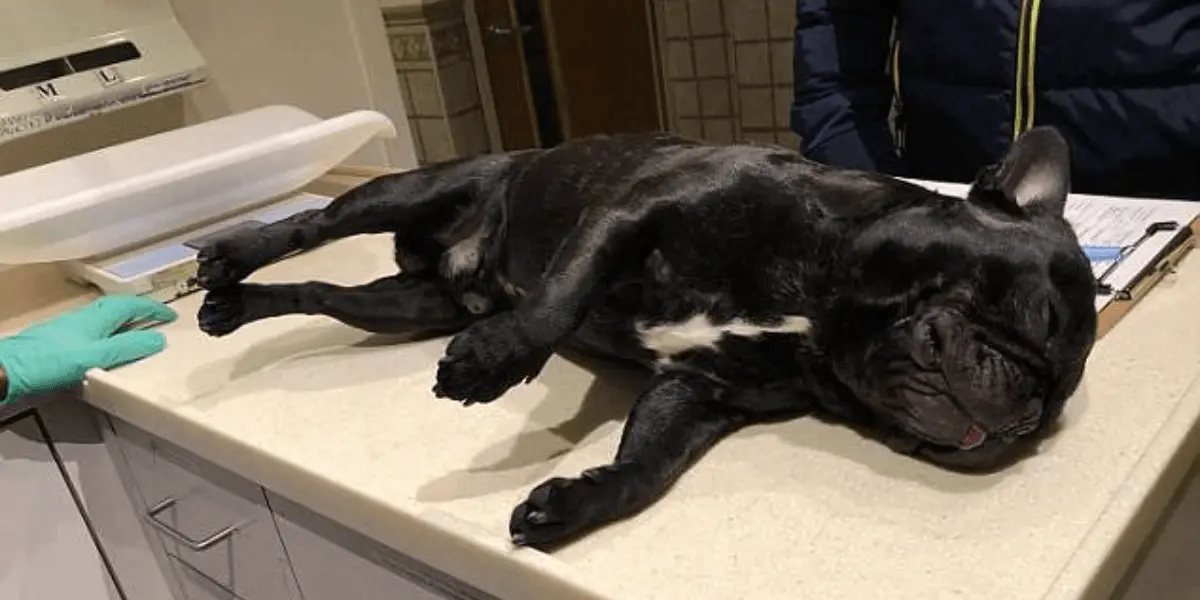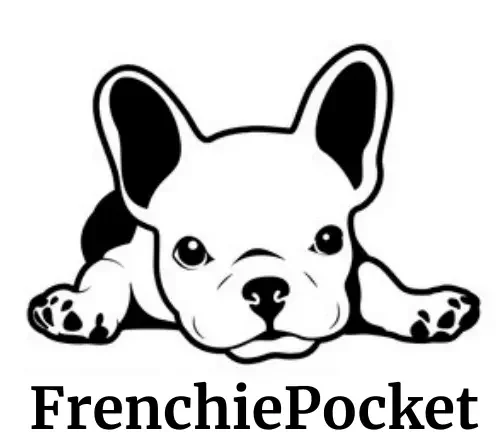French Bulldog Seizures: Causes, Symptoms, and Treatment
The charm and charisma of the French Bulldog have won hearts globally. However, beyond their endearing bat-like ears and distinctive appearance, these little canines are not immune to health challenges.

One of the prevalent concerns among French Bulldog owners is the phenomenon of “French Bulldog Seizures.” These seizures, while distressing to witness, are a critical topic of interest because of their potential impact on the well-being of this beloved breed. Understanding the triggers, symptoms, and proactive measures associated with French Bulldog Seizures is vital for ensuring optimal health and care for these dogs.
In this guide, we delve deep into this subject, providing valuable insights for owners, breeders, and enthusiasts alike.
Seizures in French Bulldogs: Understanding the Causes
When we think of French Bulldogs, images of adorable, wide-eyed pups with distinctive bat-like ears often come to mind. They are cherished pets, known for their affable nature and delightful expressions. However, beneath their playful demeanor, French Bulldogs, like other breeds, are vulnerable to certain health concerns. One such concern is seizures.
Now, if you’re a French Bulldog owner, the mere mention of the word ‘seizure’ might set off alarm bells. And rightfully so—witnessing your fur buddy in the throes of a seizure can be an immensely distressing experience. It’s a situation where understanding the underlying causes becomes paramount, not just for your peace of mind but, more importantly, for the well-being of your four-legged friend.
- The Genetic Factor: Hereditary Epilepsy
It’s a heart-wrenching fact, but some French Bulldogs are simply born with a predisposition to epilepsy. This neurological disorder often rears its head between the puppy stage and young adulthood, roughly between six months and six years of age. It’s essential to be aware of this potential genetic lottery.
- The Sugar Low: Hypoglycemia
Skipping a meal might make us humans a tad irritable, but for French Bulldog puppies, it can be gravely serious. Their tiny bodies may react to a lack of food by plummeting blood sugar levels, which, in some cases, can induce seizures.
- The Accidental Bump: Head Trauma
Dogs are naturally curious and, let’s admit it, occasionally clumsy. An unfortunate tumble or collision can sometimes lead to a head injury, which in turn can be a precursor to seizures.
- The Invisible Enemies: Toxins
As dog parents, we’re often warned about the dangers of chocolate. But beyond these sweet treats, other harmful substances, such as certain plants or even antifreeze, can wreak havoc on a dog’s system and trigger seizures.
- The Silent Threat: Brain Tumors
While not common, brain tumors can be culprits too. These growths, often detected in older dogs, can impede regular brain function and potentially lead to seizures.
- The Unseen Invaders: Infectious Diseases
Be it bacterial, viral, or fungal, infections that target the brain or the central nervous system can sometimes be the underlying cause of a seizure episode.
- The Vital Organ Angle: Liver and Kidney Diseases
Our pets rely on their liver and kidneys to purge toxins. If these organs falter, the accumulated toxins might adversely affect the brain, leading to, you guessed it, seizures.
French Bulldog Seizure Symptoms
As pet parents, witnessing a seizure in your French Bulldog can be a heart-wrenching experience. In such moments, every second counts, and recognizing the early signs of a seizure could potentially save your little companion’s life. Here we elucidate the typical signs that may indicate a seizure in French Bulldogs:
Loss of Consciousness:
Your French Bulldog might collapse, lying on its side and not responding to stimuli as it usually would.
Understanding the Symptom: The brain’s erratic activity during a seizure can cause a sudden and temporary loss of consciousness.
Muscle Twitching:
The uncontrollable twitching of muscles, particularly in the legs, is a distinct sign of a seizure.
Understanding the Symptom: This twitching stems from irregular electrical impulses sent to the muscles from the brain.
Drooling:
Keep an eye out for excessive salivation, which is quite uncharacteristic of your bulldog.
Understanding the Symptom: During a seizure, your French Bulldog may lose control over the salivary glands, resulting in drooling.
Paddling of Legs:
It might appear as if your fur buddy is trying to swim on dry land, with frantic leg movements.
Understanding the Symptom: This is another manifestation of irregular brain activity interfering with muscular control.
Loss of Bladder or Bowel Control:
Your French Bulldog might unexpectedly urinate or defecate during the episode.
Understanding the Symptom: Seizures can lead to a temporary loss of control over bodily functions.
Staring or Twitching of Eyes:
Your pet may either have a fixed, vacant stare or exhibit uncontrolled eye movements.
Understanding the Symptom: During a seizure, a dog’s visual perception can be altered, leading to these symptoms.
Chewing or Biting:
The bulldog might chew or bite in the air as if trying to catch something that isn’t there.
Understanding the Symptom: This could be a result of the dog experiencing hallucinations or other sensory distortions during the seizure.
In the aftermath of the seizure, known as the postictal phase, you might notice:
- Disorientation: Your bulldog may seem confused, not recognizing familiar places or faces.
- Temporary Blindness: In some cases, dogs might temporarily lose their sight.
- Difficulty Walking: Your pet might stumble or find it hard to walk as they normally would.
Understanding that this postictal phase is a recovery period where your French Bulldog is essentially ‘rebooting’ is essential.
French Bulldog Seizure while sleeping
French Bulldogs, like other breeds, can experience seizures, sometimes even while they’re sleeping. These episodes can be distressing for pet owners to witness. During a nocturnal seizure, a French Bulldog might display stiffening of the body, involuntary jerking movements, drooling, or even loss of bladder control. It’s vital to differentiate these signs from the typical twitching or movements dogs might exhibit during deep sleep or dreaming. If a French Bulldog is suspected of having seizures, especially during sleep, it’s crucial to consult with a veterinarian to determine the cause and get appropriate care. Recording such episodes can also be beneficial in aiding the vet’s diagnosis.
Treatment and Management of Seizures in French Bulldogs
Seizures in French Bulldogs can be both alarming and emotionally draining for the pet parent. Knowing how to react and manage the situation can make a world of difference for your furry friend. Here’s a guide on what to do if you suspect your French Bulldog is experiencing a seizure, and the potential treatments available:
- Immediate Response:
Stay Calm: You must maintain your composure. Your dog needs you to be calm to ensure their safety and well-being.
- Ensure Safety:
Remove any potential hazards, like sharp objects or furniture, from the vicinity. If they’re near stairs or elevated platforms, try to gently guide them away or place soft barriers to prevent injury.
- Do Not Restrain:
While your instinct might be to hold them tight, restraining a dog during a seizure can lead to injuries—both to the dog and you.
- Observe and Document:
Try to capture the episode on video if possible; it can be invaluable for your vet. Note down the duration, severity, and any specific behaviors exhibited during the seizure.
- Seek Veterinary Care:
Once the episode subsides, promptly consult your veterinarian. Even if it’s the first occurrence, it’s essential to get professional advice.
Treatment Options:
The appropriate treatment largely depends on identifying the root cause of the seizures:
- Medication:
Dogs diagnosed with chronic conditions like epilepsy might be prescribed medications to manage and reduce the occurrence of seizures. Common anticonvulsants include phenobarbital and potassium bromide.
Regular blood tests might be required to monitor the medication’s impact and any potential side effects.
- Dietary Management:
For French Bulldogs prone to hypoglycemia, maintaining consistent blood sugar levels is paramount. Regular feeding schedules, and, in some cases, specialized diets, can be instrumental in staving off seizures triggered by low blood sugar.
- Remove Toxins:
If your vet determines a particular toxin as the cause, they might proceed with treatments to expel the toxin from the dog’s system. Always keep potential toxins like certain plants, foods, or chemicals out of your dog’s reach.
- Regular Check-ups:
Routine veterinary visits are essential. These allow the vet to keep an eye on any developing health concerns and adjust treatment protocols as necessary.
While seizures can be distressing, remember that with timely intervention, most dogs can lead a comfortable and fulfilling life. Your role as a pet parent is to ensure their environment is safe, adhere to treatment guidelines, and shower them with the love and care they deserve. Your French Bulldog relies on you, and with the right approach, you can make their journey smoother and more comfortable.
Epilepsy in French Bulldogs
Epilepsy in French Bulldogs is a concerning issue, and understanding the various facets of this condition is crucial for owners. The phenomenon of Seizures in franchises brings to light how repetitive and alarming these episodes can be, and it’s essential to know what to look out for.
Many owners report their French Bulldog having seizures with varying levels of intensity. These episodes can be particularly distressing if the dog is previously known to be in good health. Symptoms can range from mild, where the dog appears dazed, to more severe manifestations such as tonic-clonic seizures.
Another alarming scenario is when a French Bulldog seizure while sleeping occurs. This can be particularly concerning because it’s unexpected. Owners might find their beloved pet convulsing or twitching uncontrollably in the middle of a peaceful sleep. Understanding the triggers and the pattern of these seizures is essential for providing appropriate care.
Unfortunately, there are instances where a French Bulldog seizure death occurs. In any case, if your French Bulldog displays signs of seizures, immediate consultation with a veterinarian is paramount.
Possibilities for French Bulldog Seizure Death
French Bulldogs, like any other breed, can unfortunately suffer from seizures. The direct cause of the seizure might not always be fatal, but the underlying reasons or the side effects of the seizure can pose risks.
- Status Epilepticus: Essentially, this is when a seizure just doesn’t stop. It’s concerning because extended seizure activity can cause complications, including potential brain injury or even death.
- Physical Harm: A seizing dog can unintentionally hurt itself. This might include falls, bumps, or other accidents during the convulsions. In some rare cases, these injuries can be severe.
- Breathing Challenges: Given their short-nosed structure, French Bulldogs can already have some breathing issues. A seizure might exacerbate these difficulties, leading to potential respiratory distress.
- Hidden Health Conditions: Sometimes, a seizure is just the tip of the iceberg, indicating other serious health issues, such as tumors, infections, or metabolic imbalances. These health concerns can have their own associated risks.
- Overheating Issues: A seizure can spike a dog’s body temperature. For breeds already sensitive to heat, this spike can be particularly dangerous.
- Choking Risks: If the dog vomits or produces excess saliva during a seizure, there’s a risk of inhaling this, which can lead to aspiration pneumonia—a serious and potentially life-threatening condition.
It’s imperative for any French Bulldog owner witnessing seizures to seek veterinary advice. Addressing the root cause and ensuring proper care is the key to managing and potentially minimizing future episodes.
Frequently Asked Question
What should I do if my French Bulldog is having a Seizure?
Stay calm, ensure the dog’s safety by removing any harmful objects around, do not restrain the dog, observe and document the seizure, and consult a veterinarian afterward.
Can seizures in French Bulldogs be treated?
Yes, depending on the cause. Treatment options include medication, dietary management, toxin removal, and addressing underlying health conditions.
How often should my French Bulldog see a vet if diagnosed with Seizures?
Regular check-ups are crucial, especially in the initial stages of diagnosis. Your vet will provide a recommended schedule, but in general, frequent monitoring is necessary when beginning or adjusting medications.
Can my French Bulldog live a normal life despite having Seizures?
Many dogs with seizure disorders, when appropriately managed, can lead full, happy lives. Regular vet visits and adherence to treatment protocols are essential.
Are there any triggers I should be aware of that can provoke a Seizure in my French Bulldog?
Triggers can vary for each dog. Common ones include certain foods, missed meals (leading to hypoglycemia), specific chemicals, sudden loud noises, extreme temperature changes, and excessive excitement.
Can stress cause Seizures in French Bulldogs?
While stress alone isn’t a direct cause, it can be a triggering factor in dogs already predisposed to seizures.
Is there a specific diet recommended for French Bulldogs with Seizures?
If the seizures are linked to hypoglycemia, regular feeding schedules can help. In some cases, vets might recommend a specialized diet or supplements.
Are Seizures painful for French Bulldogs?
Seizures themselves are not typically painful. However, injuries can occur during a seizure if the dog falls or hits something. The postictal phase (after the seizure) can be disorienting for the dog but is not necessarily painful.
Conclusion
Navigating the world of French Bulldog Seizures might initially feel overwhelming, but here’s the silver lining: with the right approach and a sprinkle of dedication, it’s a challenge that many pet owners have successfully managed. Remember, it’s not just about timely vet visits or medication schedules; it’s also about those quiet moments of reassurance, the gentle strokes, and the words of comfort that make all the difference. Your French Bulldog doesn’t just need medical care; they need you – with all the empathy and understanding you bring. So, as we come to the end of this discussion, let’s take a moment to appreciate the resilience of our four-legged pals and the incredible bond that makes every hurdle worth tackling.







